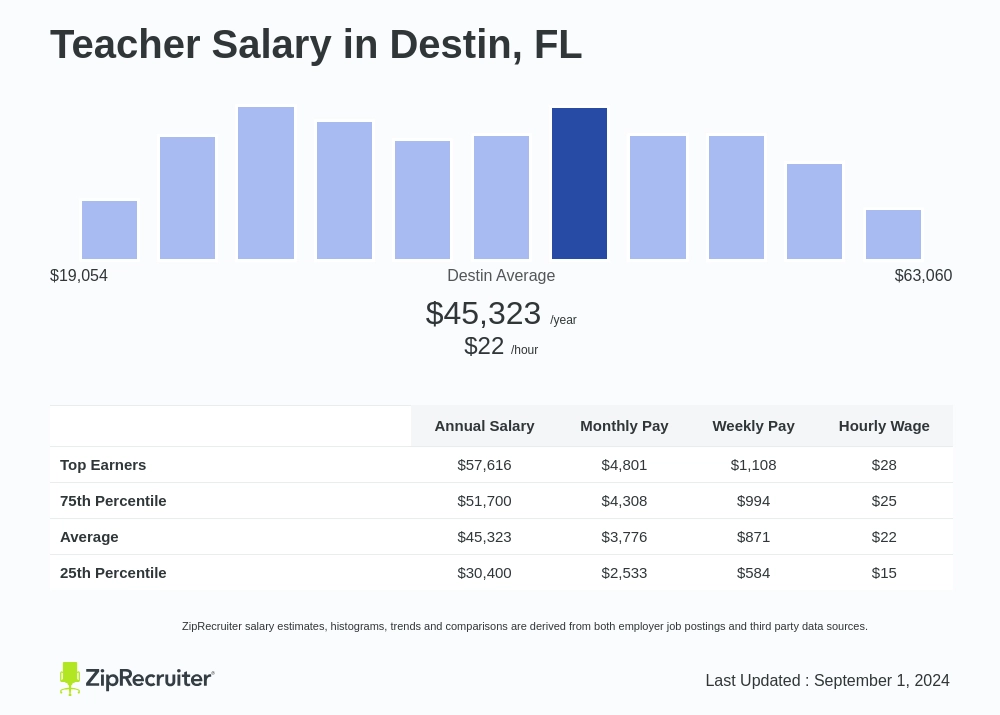When it comes to understanding salary incentives, especially in the context of Florida’s educational system, it’s important to break things down into simple, manageable pieces. If you’re wondering, “What classes are eligible for salary incentive pay in Florida?” you’re not alone. This article will explain everything you need to know about salary incentives for educators in Florida, in a way that’s easy to understand for everyone.
What Is Salary Incentive Pay?
Salary incentive pay is a special type of payment that rewards teachers and other education professionals for their work. In Florida, this system is designed to encourage educators to improve their skills, work in challenging schools, and contribute positively to student outcomes. It’s like a bonus you get for doing extra good work. Also read Understanding Salary Incentive Pay What Classes Are Eligible in Florida?
Who Can Get Salary Incentive Pay in Florida?
In Florida, not all teachers or school staff automatically receive salary incentive pay. There are specific criteria and classes that determine eligibility. Generally, these incentives are aimed at roles or subjects that are in high demand or that require special skills. But what exactly are those criteria? Let’s break it down.
Teaching in High-Need Subjects
One major category for eligibility is teaching in high-need subjects. These subjects are critical to students’ education but often struggle to find enough qualified teachers. For example, teachers in subjects like mathematics, science, and special education are often eligible for salary incentives. The idea is that these areas are so important that we want to attract the best teachers to them.
Working in High-Demand Areas
Another factor that affects eligibility is working in high-demand or underserved areas. If a teacher is working in a school that faces significant challenges, such as a high number of students with low socio-economic backgrounds or in a rural area, they might be eligible for additional pay. The state recognizes that teaching in these environments can be more difficult, and the incentive pay helps to make these positions more attractive.
Achieving Outstanding Performance
Teachers who demonstrate exceptional performance and contribute significantly to their students’ success might also qualify for salary incentives. This can include achievements such as improving student test scores, developing innovative teaching methods, or receiving positive feedback from students and parents. It’s a way of saying, “Great job!” and encouraging more of the same high-quality work.
Special Certifications and Degrees
Certain certifications and advanced degrees can also make teachers eligible for salary incentives. For instance, teachers who have specialized certifications in areas like English as a Second Language (ESL) or who have earned advanced degrees such as a master’s or doctorate might be eligible. These qualifications show that a teacher has gone above and beyond the basic requirements, which is recognized and rewarded through salary incentives.
How Do Teachers Apply for Salary Incentive Pay?
Applying for salary incentive pay usually involves a few steps. First, teachers need to check if they meet the criteria set by the Florida Department of Education or their local school district. Each district may have its own set of rules and processes, so it’s important to be familiar with those.
Check Eligibility Requirements
Teachers should start by reviewing the eligibility requirements for salary incentives. This information can often be found on the Florida Department of Education website or through their school district’s human resources department. It’s crucial to understand what qualifications and achievements are needed to qualify.
Submit Necessary Documentation
Once eligibility is confirmed, teachers may need to submit documentation to support their application. This could include proof of certifications, evidence of outstanding performance, or records showing they work in a high-need area. Gathering and organizing this information carefully can help ensure a smooth application process.
Await Review and Approval
After submitting their application, teachers will need to wait for it to be reviewed and approved. This process can take some time, as it involves verifying the submitted information and assessing whether all criteria are met. Patience is key during this phase.
Benefits of Salary Incentive Pay
Salary incentive pay is more than just extra money; it has several important benefits for teachers and the educational system as a whole.
Attracts and Retains Talent
One major benefit is that it helps attract and retain talented teachers. By offering additional pay for challenging roles or exceptional performance, schools can draw in highly skilled educators and keep them in the profession. This is crucial for maintaining high-quality education.
Encourages Professional Development
Incentives also encourage teachers to pursue professional development. When teachers know that improving their skills can lead to extra pay, they are more likely to seek out training and certifications. This ongoing learning benefits both teachers and their students.
Improves Student Outcomes
When teachers are motivated and supported, student outcomes often improve. Incentive pay can lead to better teaching practices, more engaged students, and higher academic achievement. In the end, everyone benefits from a well-supported educational environment.
Challenges and Considerations
While salary incentive pay has many benefits, there are also some challenges and considerations to keep in mind.
Fairness and Equity
One challenge is ensuring fairness and equity in how incentives are distributed. It’s important that the criteria for receiving incentives are clear and applied consistently. If not, it can lead to feelings of unfairness among staff, which can affect morale.
Measuring Performance
Another consideration is how to measure performance effectively. Evaluating teachers can be complex, and there is no one-size-fits-all approach. Schools need to develop fair and comprehensive methods to assess performance and determine who qualifies for incentives.
Budget Constraints
Lastly, budget constraints can affect the availability of salary incentives. Not all schools or districts may have the funds to offer these incentives, which can impact how widespread they are. It’s important for policymakers to consider these financial aspects when designing incentive programs.
Conclusion
Understanding “what classes are eligible for salary incentive pay in Florida” involves looking at a few key factors. Teachers in high-need subjects, those working in challenging areas, those who achieve outstanding performance, and those with special certifications are typically eligible. The process involves checking eligibility, submitting documentation, and waiting for review.
Salary incentive pay plays a crucial role in attracting and retaining talented teachers, encouraging professional development, and ultimately improving student outcomes. However, challenges such as ensuring fairness and managing budgets must also be addressed. By understanding these aspects, educators and policymakers can work together to create a more effective and supportive educational system in Florida.
Hopefully, this guide helps clarify how salary incentives work and what classes are eligible for them. If you have any more questions or need further details, don’t hesitate to reach out to your local school district or the Florida Department of Education.





